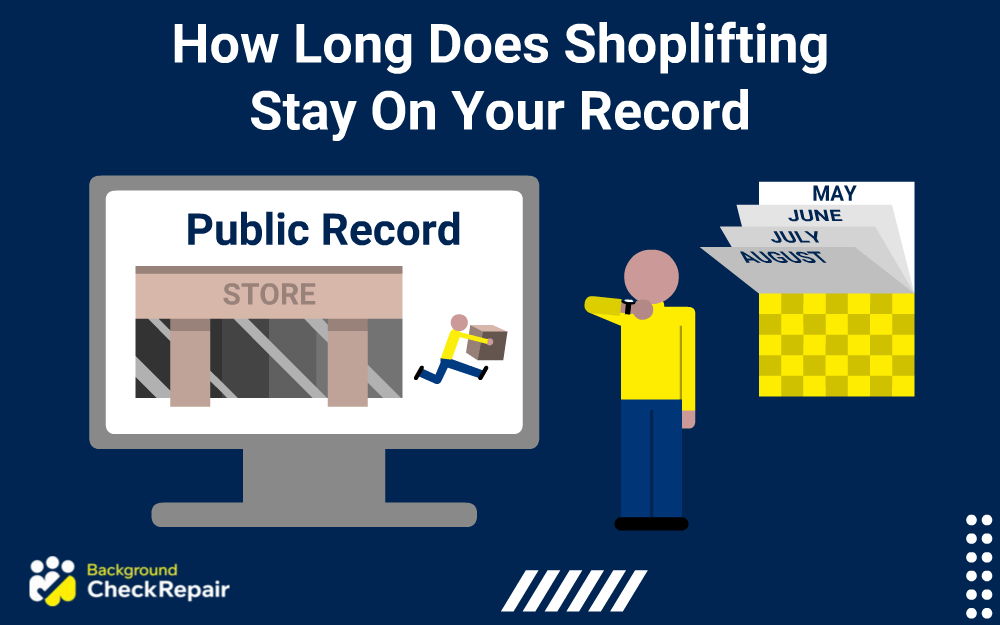
Many individuals may be confused with the way theft laws work and wonder how long does shoplifting stay on your record?
The petty theft law is one of the biggest causes of confusion, because basically, the difference between petty theft and grand theft has to do with the value of the items that were stolen.
But, the exact dollar amount varies from state to state.
The main thing to remember when asking how long does shoplifting stay on your record, is that you can access your criminal record with a free background check anytime.
Or, you can follow the steps outlined in the complete guide to learn how long does shoplifting stay on your record in all 50 states.
How Long Does Theft Stay on Your Record?
Individuals who have been convicted of theft or larceny will likely want to know: How long does theft stay on your record? There are a few different things to consider but in general, the majority of theft convictions will appear on an individual’s criminal record for at least 10 years.
Whether the conviction is for theft, larceny, or shoplifting, how long it stays on the individual’s record is the same. In most states, convictions will remain on the individual’s record and will be part of the public record forever.
The laws outlined by the FCRA are the only federal laws regarding individuals’ criminal records and background checks.1 This leaves the majority of criminal record laws up to individual states. The majority of states have very few laws regarding who has access to an individual’s criminal record and for how long.
People who are applying for jobs may find it troubling. How far back a background check goes for employment is one of the main concerns people have, particularly those who have a history of theft. As a result, the question about how to conduct an employment history background on myself was raised.
In states with little to no laws regarding background checks, the only way for an individual to clean up their criminal record is by getting the individual crimes sealed or expunged through the courts. This will make the records invisible to background check agencies, such as the ones used by employers as part of a pre-employment background check.
Although most states allow for records to be viewed indefinitely, more and more states are drafting laws to help individuals with criminal records find employment. There have been various approaches to this such as making the sealing of records easier and faster or creating laws that follow the seven-year rule, which makes it illegal for a background check agency to report criminal history information to an employer if the crime happened more than 7-10 years ago.
Even with several options available, it is fairly likely that a shoplifting charge will remain on an individual record for a very long time, if not forever.
How Long Does a Shoplifting Charge Stay on Your Record?
In general, all crimes will remain on an individual’s record for the same amount of time, the specific crime that was committed will make little difference.
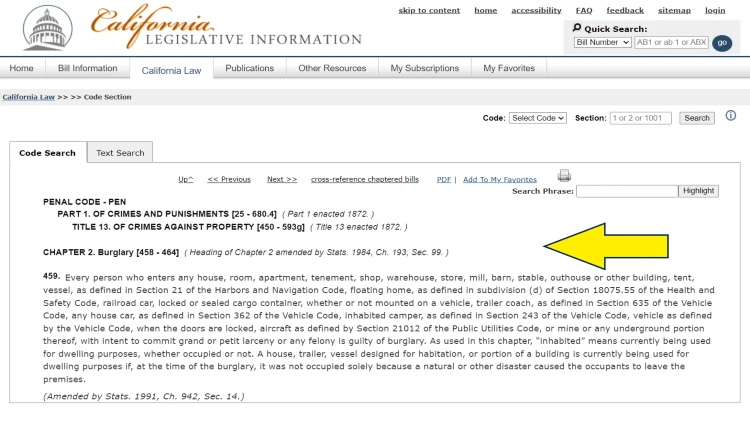
Shoplifting, also known as burglary, is defined by each state’s legal code.
However, there is a difference between charges and convictions when it comes to an individual’s record. When it comes to how long does a shoplifting charge stay on your record, the answer is somewhat complicated and will depend heavily on the state the crime was committed in.
In most states charges that do not result in a conviction are eligible to be sealed a year after the crime was charged. Compared to getting a conviction sealed, the process for getting charges sealed is usually far easier and quicker.
How Long Do Stores Keep Shoplifting Records?
Some individuals who have been caught shoplifting from a retail store will be wondering how long do stores keep shoplifting records? Generally, whether or not the records are kept at all is a matter of store policy.
With large retailers like Walmart, loss prevention will keep the records for years electronically. Many retailers are even using facial recognition technology throughout the store such as self-checkout stations.
Does Shoplifting Show Up on a Background Check?
Sometimes individuals with criminal records will be applying for jobs and be asked to undergo a background check and will want to know: does shoplifting show up on a background check? Almost all background checks will be able to find any and all criminal charges against an individual including shoplifting charges and convictions.
Most employer background checks are performed by private background check agencies that perform searches of the individual’s name through dozens of public databases, such as court records and police records. This will allow the employer to view any criminal charges that have ever been filed against the individual unless a sealed record or state law prevents the record from being viewed.
Individuals who are unsure what will show up on their background check should perform a background check on themselves before the official check is performed. This can be easily done using the search bar at the top of this page which will search all public records of the individual’s name that is entered. Individuals can also use a 7-day free trial background check service to perform the check or get an official federal background check through the FBI.2
How Long Does Shoplifting Stay on Your Record if It Is a Felony?
There are plenty of misconceptions regarding how long misdemeanors stay on an individual’s record compared to felonies. This leads many individuals to ask questions like: How long does shoplifting stay on your record if it is a felony?
In most cases, unless there is a state law pertaining to the issue specifically, a misdemeanor shoplifting charge will remain on the individual’s record just as long as a felony charge will.
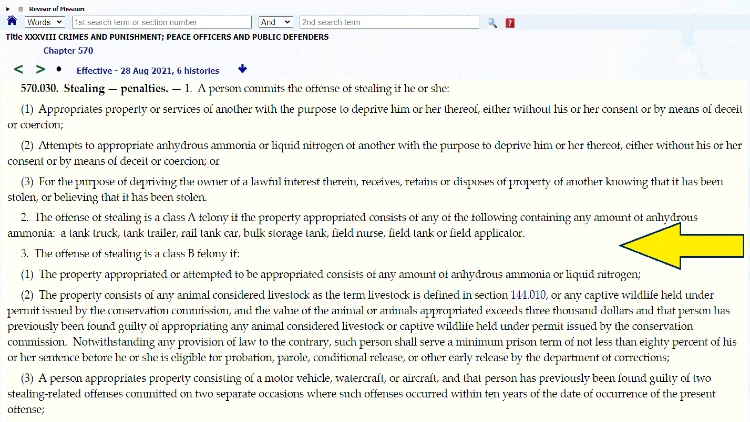
Penalties for shoplifting are based on the value of the property, and each state sets values and punishments through the legislative branch.
In most cases, this will be 10 years or longer. However, it is generally easier to get misdemeanor crimes sealed compared to felony records.
To lessen the anxiety for people who are running background checks on you, you might ask can I conduct a background check on myself? It’s best to perform a background investigation on yourself so you can properly protect yourself when the charges are brought up.
How Long Does a Shoplifting Misdemeanor Stay on Your Record?
Individuals convicted of shoplifting may be wondering how long does a shoplifting misdemeanor stay on your record? Generally, a shoplifting misdemeanor will stay on an individual’s record forever. There are notable exceptions, such as states that follow the 10 year rule.
Does Shoplifting Go on Your Record if Your a Minor?
The way records work when it comes to crimes committed as a minor is a major cause for confusion. When it comes to does shoplifting go on your record if you’re a minor? The answer is yes, assuming that charges were filed for the crime.
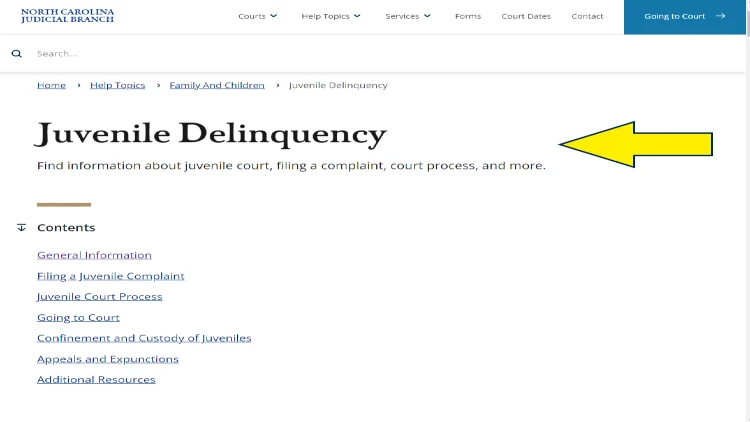
Juvenile court records are typically sealed to protect minor’s information, however, certain agencies have access to them even after the juvenile becomes an adult.
Although it is unlikely the charges will automatically be sealed when the individual turns 18, in most states, it is fairly easy to get criminal charges sealed from when the individual was a minor. Unlike adult charges which are difficult to clear, juvenile charges usually have a different and easier process.
Pretty Theft Vs Grand Theft
Another common source of confusion when it comes to How long does shoplifting stay on your record? Is the difference between theft and larceny as well as the difference between petty larceny and grand larceny.
Generally, theft and larceny are used interchangeably but some states do make a distinction between the two. When the distinction is made, larceny will usually refer to the theft of physical property whilst theft is a broader term and can include things like intellectual theft.
The difference between petty larceny and grand larceny is fairly simple. Most states will refer to misdemeanor theft charges as petty theft, and felony charges will be referred to as grand theft. As mentioned the difference between a misdemeanor and felony charges will usually deal with the value of the items that were stolen.
Use the table below to learn more about shoplifting charges in each state.
| Shoplifting Charges and Penalties for Each State | Petty Larceny Charge | Grand Larceny Charge |
| Alabama | Class A Misdemeanor
Up to 1 Year in Jail
Criminal Code, State of Alabama
7-10 Years on the Record | Felony Charge on Property Valued Over $2500
Up to 20 Years in Prison
7-10 Years on the Record |
| Alaska | Class A Misdemeanor
Up to 1 Year of Jail Time
Criminal Statute, State of Alaska3 Records Stay for a Lifetime | Felony Charge on Property Valued Over $750
Up to 10 Years Imprisonment
Records Stay for a Lifetime |
| Arizona | Class 1 Misdemeanor
Up to 6 Months in Jail
Criminal Code, State of Arizona
Records Stay Until the Age of 99 | Felony Charge on Property Valued Over $1000
Up to 35 Years in Prison
Records Stay Until the Age of 99 |
| Arkansas | Class A Misdemeanor
Up to 1 Year of Jail Time
Arkansas Code for Laws and Statutes
Up to 5 Years on the Record | Felony Charge on Property Valued Over $1000
Up to 20 Years Imprisonment
Up to 5 Years on the Record |
| California | Misdemeanor Charge
Up to 1 Year in Jail
Penal Code, State of California4 7-10 Years on the Record | Felony Charge on Property Valued Over $950
16 Months to 3 Years of Imprisonment
7-10 Years on the Record |
| Colorado | Class 1 Misdemeanor
Up to 18 Months in Jail
Colorado Revised Statutes
Up to 7 Years on the Record | Felony Charge on Property Valued Over $2000
Up to 24 Years Imprisonment
7-10 Years on the Record |
| Connecticut | Class A Misdemeanor
Up to 1 Year of Jail Time
General Statutes, State of Connecticut
7 years on the Record | Felony Charge on Property Valued Over $2000
Up to 20 Years Imprisonment
7-10 Years on the Record |
| Delaware | Class A Misdemeanor
Up to 1 Year of Jail Time
Crimes and Criminal Procedure, State of Delaware
7-10 Years on the Record | Felony Charge on Property Valued Over $1500
Up to 25 Years Imprisonment
Up to 10 Years on the Record |
| Florida | First Degree Misdemeanor
Up to 1 Year in Jail
Florida Criminal Statutes
Records Stay for a Lifetime | Felony Charge on Property Valued Over $750
Up to 30 Years Imprisonment
Records Stay for a Lifetime |
| Georgia | Misdemeanor Charge
Up to 1 Year in Jail
General Statutes, State of Georgia
Up to 2 Years on the Record | Felony Charge on Property Valued Over $25000
Up to 20 Years Imprisonment
Up to 4 Years on the Record |
| Hawaii | Misdemeanor Charge
Up to 1 Year in Jail
Hawaii Revised Statutes
Up to 5 Years on the Record | Felony Charge on Property Valued Over $750
Up to 10 Years Imprisonment
Up to 5 Years on the Record |
| Idaho | Misdemeanor Charge
Up to 1 Year in Jail
Crimes and Punishments, State of Idaho
Up to 5 Years on the Record | Felony Charge on Property Valued Over $1000
Up to 20 Years Imprisonment
Up to 5 Years on the Record |
| Illinois | Class A Misdemeanor
Up to 1 Year of Jail Time
Illinois Compiled Statutes
Up to 2 Years on the Record After Completing Probation/Sentence | Felony Charge on Property Valued Over $500
Up to 30 Years Imprisonment
Up to 5 Years on the Record After Completing Probation/Sentence |
| Indiana | Class A Misdemeanor
Up to 1 Year in Jail
Indiana Code
Up to 5 Years on the Record | Felony Charge on Property Valued Over $750
Up to 6 Years Imprisonment
Up to 8 Years on the Record |
| Iowa | Misdemeanor Charge
Up to 2 Years in Jail
Iowa Code
8 or More Years on the Record | Felony Charge on Property Valued Over $1500
Up to 10 Years Imprisonment
8 or More Years on the Record |
| Kansas | Class A Misdemeanor
Up to 1 Year in Jail
Kansas Statute
Up to 2 Years on the Record | Felony Charge on Property Valued Over $1500
Up to 136 Months (Over 11 Years) of Imprisonment
3-5 Years on the Record |
| Kentucky | Class A Misdemeanor
Up to 1 Year in Jail
Kentucky Revised Statutes
Up to 1 Year on the Record | Felony Charge on Property Valued Over $1000
Up to 20 Years Imprisonment
Up to 3 Years on the Record |
| Louisiana | Misdemeanor Charge
Up to 2 Years in Jail
Louisiana Laws
Up to 5 Years on the Record | Felony Charge on Property Valued Over $1000
Up to 20 Years Imprisonment
Up to 10 Years on the Record |
| Maine | Misdemeanor Charge
Up to 364 Days in Jail
Criminal Code, State of Maine6
Records Stay for a Lifetime | Felony Charge on Property Valued Over $1000
Up to 10 Years Imprisonment
Records Stay for a Lifetime |
| Maryland | Misdemeanor Charge
Up to 5 Years in Jail
Criminal Law, State of Maryland
Up to 3 Years on the Record | Felony Charge on Property Valued Over $1500
Up to 20 Years Imprisonment
Up to 3 Years on the
Record |
| Massachusetts | Misdemeanor Charge
Up to 1 Year in Jail
General Laws, State of Massachusetts
Up to 3 Years on the Record | Felony Charge on Property Valued Over $1200
Up to 5 Years Imprisonment
Up to 7 Years on the Record |
| Michigan | Misdemeanor Charge
Up to 1 Year in Jail
Michigan Compiled Laws
Up to 7 Years on the Record | Felony Charge on Property Valued Over $1000
Up to 10 Years Imprisonment
Up to 10 Years on the Record |
| Minnesota | Misdemeanor Charge
Up to 90 Days in Jail
Minnesota Statutes
Up to 2 Years on the Record | Felony Charge on Property Valued Over $1000
Up to 10 Years Imprisonment
Up to 5 Years on the Record |
| Mississippi | Misdemeanor Charge
Up to 6 Months in Jail
Mississippi Code
Up to 2 Years on the Record | Felony Charge on Property Valued Over $1000
Up to 20 Years Imprisonment
Up to 5 Years on the Record |
| Missouri | Class A Misdemeanor
Up to 1 Year in Jail
Criminal Code, State of Missouri
Up to 3 Years on the Record | Felony Charge on Property Valued Over $750
Up to 30 Years Imprisonment
Up to 7 Years on the Record |
| Montana | Misdemeanor Charge
Up to 1 Year in Jail
Montana Code Annotated
Up to 5 Years on the Record | Felony Charge on Property Valued Over $1500
Up to 10 Years Imprisonment
Up to 5 Years on the Record |
| Nevada | Misdemeanor Charge
Up to 6 Months in Jail
Nevada Revised Statutes
Up to 7 Years on the Record | Felony Charge on Property Valued Over $1200
Up to 20 Years Imprisonment
Up to 10 Years on the Record |
| New Hampshire | Misdemeanor Charge
Up to 6 Months in Jail
New Hampshire Revised Statutes
Up to 3 Years on the Record | Felony Charge on Property Valued Over $1000
Up to 15 Years Imprisonment
Up to 10 Years on the Record |
| New Jersey | Disorderly Persons Offense
Up to 6 Months in Jail
New Jersey Statutes5
Up to 5 Years on the Record | Indictable Crimes on Property Valued Over $200
Up to 10 Years Imprisonment
Up to 10 Years on the Record |
| New Mexico | Misdemeanor Charge
Up to 1 Year in Jail
New Mexico Statutes and Court Rules
Up to 2 Years on the Record | Felony Charge on Property Valued Over $500
Up to 9 Years Imprisonment
Up to 10 Years on the Record |
| New York | Class A Misdemeanor
Up to 364 Days in Jail
New York Penal Law
Up to 10 Years on the Record | Felony Charge on Property Valued Over $1000
Up to 25 Years Imprisonment
Up to 10 Years on the Record |
| North Carolina | Class 1 Misdemeanor
Up to 45 Days in Jail
North Carolina General Statutes
Up to 5 Years on the Record | Felony Charge on Property Valued Over $1000
Up to 5 to 6 Months Imprisonment
Up to 10 Years on the Record |
| North Dakota | Class A Misdemeanor
Up to 360 Days in Jail
North Dakota Century Code
Up to 3 Years on the Record | Felony Charge on Property Valued Over $1000
Up to 20 Years Imprisonment
Up to 5 Years on the Record |
| Ohio | Misdemeanor Charge
Up to 180 Days in Jail
Ohio Revised Code
Up to 1 Year on the Record | Felony Charge on Property Valued Over $1000
Up to 16.5 Years Imprisonment
Up to 3 Years on the Record |
| Oklahoma | Misdemeanor Charge
Up to 1 Year in Jail
Oklahoma Statutes
Up to 5 Years on the Record | Felony Charge on Property Valued Over $1000
Up to 10 Years Imprisonment
Up to 5 Years on the Record |
| Oregon | Class A Misdemeanor
Up to 1 Year in Jail
Oregon Revised Statutes
Such Offense Can’t Be Expunged | Felony Charge on Property Valued Over $1000
Up to 16.5 Years Imprisonment
Depends on the Severity of the Crime |
| Pennsylvania | 1st Degree Misdemeanor
Up to 5 Years in Jail
Crimes and Offenses, State of Pennsylvania
Up to 10 Years on the Record | Felony Charge on Property Valued Over $2000
Up to 20 Years Imprisonment
Up to 10 Years on the Record |
| Rhode Island | Misdemeanor Charge
Up to 1 Year in Jail
General Assembly, State of Rhode Island
Up to 5 Years on the Record | Felony Charge on Property Valued Over $1500
Up to 10 Years Imprisonment
Up to 10 Years on the Record |
| South Carolina | Misdemeanor Charge
Up to 30 Days in Jail
Code of Laws, State of South Carolina
Up to 5 Years on the Record | Felony Charge on Property Valued Over $2000
Up to 10 Years Imprisonment
Up to 5 Years on the Record |
| South Dakota | Class 1 Misdemeanor
Up to 45 Days in Jail
South Dakota Codified Laws
Up to 10 Years on the Record | Felony Charge on Property Valued Over $2500
Up to 15 Years Imprisonment
Up to 10 Years on the Record |
| Tennessee | Class A Misdemeanor
Up to 11 Months and 29 Days in Jail
Tennessee Code
Up to 5 Years on the Record | Felony Charge on Property Valued Over $1000
Up to 60 Years Imprisonment
Up to 5 Years on the Record |
| Texas | Class A Misdemeanor
Up to 1 Year in Jail
Texas Constitution and Statutes
Up to 1 Year on the Record | Felony Charge on Property Valued Over $1000
Up to 99 Years Imprisonment
Up to 3 Years on the Record |
| Utah | Class A Misdemeanor
Up to 364 Days in Jail
Criminal Code, State of Utah
Up to 5 Years on the Record | Felony Charge on Property Valued Over $1500
Up to 15 Years Imprisonment
Up to 7 Years on the Record |
| Vermont | Misdemeanor Charge
Up to 1 Year in Jail
Vermont Statutes
Up to 5 Years on the Record | Felony Charge on Property Valued Over $900
Up to 10 Years Imprisonment
Stays on the Record for at Least 10 Years |
| Virginia | Class 1 Misdemeanor
Up to 1 Year in Jail
Code of Virginia
Records Stay for a Lifetime | Felony Charge on Property Valued Over $1000
Up to 20 Years Imprisonment
Records Stay for a Lifetime |
| Washington | Misdemeanor Charge
Up to 364 Days in Jail
Revised Code of Washington
Records Stay for a Lifetime | Felony Charge on Property Valued Over $750
Up to 10 Years Imprisonment
Records Stay for a Lifetime |
| West Virginia | Misdemeanor Charge
Up to 1 Year in Jail
West Virginia Code
Up to 1 Year on the Record | Felony Charge on Property Valued Over $1000
Up to 10 Years Imprisonment
Up to 5 Years on the Record |
| Wisconsin | Class A Misdemeanor
Up to 9 Months in Jail
Statues, State of Wisconsin
Up to 20 Years on the Record | Felony Charge on Property Valued Over $2500
Up to 12 Years and Six Months Imprisonment
Up to 75 Years on the Record |
| Wyoming | Misdemeanor Charge
Up to 6 Months in Jail
Wyoming State Statutes and Constitution
Up to 5 Years on the Record | Felony Charge on Property Valued Over $1000
Up to 10 Years Imprisonment
Up to 10 Years on the Record |
How Long Does It Take To Expunge a Misdemeanor?
Some individuals will want to clear their record as soon as possible and will want to know: How long does it take to expunge a misdemeanor? The process to get a criminal charge expunged is extremely difficult and often impossible. Many states will grant a handful of expungements each year for extreme cases. In most cases, seeking to get a record sealed instead of expunged is a far more sensible option.
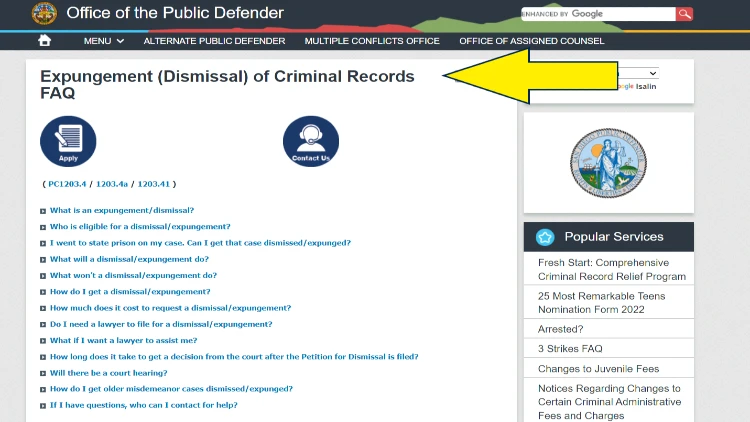
Expunging the record of a misdemeanor removes it from public record and from appearing on background checks.
When a record is expunged the record itself is essentially destroyed like the crime never happened. This is used most often for individuals convicted of crimes that they were later exonerated due to new evidence or something of this nature.
Sealing a record simply hides it from the public. Although law enforcement and other official agencies will be able to view it, it will not show up on background checks performed by private agencies, such as those used for pre-employment background checks.
How long the process takes will depend on the state, however, it is usually a somewhat fast process and shouldn’t take more than a few months in most cases.
How Long Does It Take for Your Record To Clear After Expungement?
After getting a record sealed or expunged the first question most individuals have is: How long does it take for your record to clear after expungement? Since most of these records are maintained electronically, the record will be cleared almost immediately, generally within a business day.
Can You Go to Jail for Petty Theft First Offense?
Individuals facing petty theft charges will likely want to know: Can you go to jail for petty theft first offense? Although it is certainly possible, in most cases first offenders will receive reduced sentences and will likely not receive jail time.
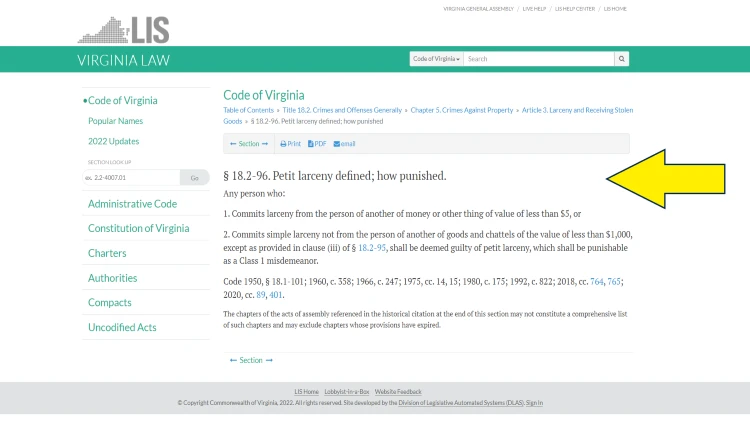
Depending on state law, most petty theft charges can be ranked as misdemeanors, and it is up to the legal code of the state to indicate whether or not a person can be jailed for the offense.
However, this is the case largely due to lawyers working out a plea deal with the prosecutor. Individuals accused of theft should contact a lawyer as soon as possible to minimize the punishment.
Can Petty Theft Charges Be Dropped?
Getting charges dropped is often the best possible outcome after an individual has been charged with a crime and many people will want to know: Can petty theft charges be dropped?
Any kind of charge can be dropped at any time during criminal proceedings. However, theft charges can be especially tricky to get dropped due to the way charges are brought. As with any crime, charges are only filed if there is enough evidence to convict the individual.
In the case of theft, there is rarely circumstantial evidence involved and most of the time that charges are filed for theft it’s because the individual was either caught in the act or there is clear video evidence of the crime taking place. With such overwhelming evidence it is very unlikely that the charges will be dropped since most charges are dropped due to insufficient evidence.
What Is the Punishment for Juvenile Theft?
When it comes to what is the punishment for juvenile theft? The answer will depend entirely on the state where the crime was committed.
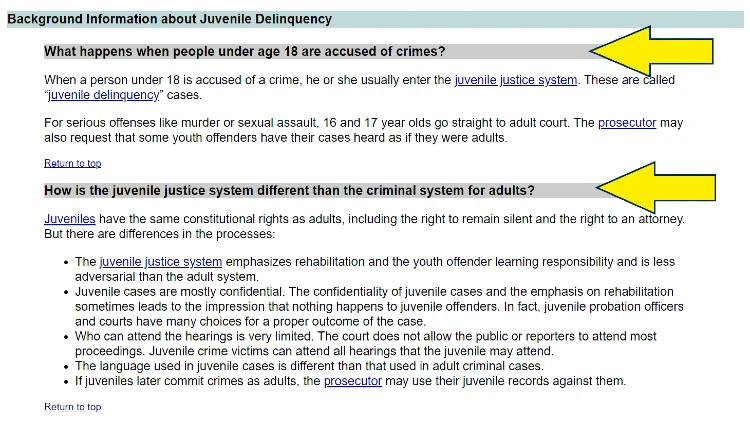
Any charges can be dropped based on a number of factors, including lack of evidence, mishandled evidence or other.
Generally, the punishments for low-level crimes like theft, especially when committed by a juvenile, are fairly minimal and individuals should expect to pay a fine as well as be put on probation.
Can a 16-Year-Old Go To Jail for Stealing?
There are lots of misconceptions about the way juveniles are prosecuted, leading many to ask: Can a 16-year-old go to jail for stealing?
Juveniles can go to a juvenile detention facility if they are caught stealing. However, this is extremely unlikely, unless the individual is a repeat offender.
Does Shoplifting Affect Employment?
Those applying for jobs with criminal records will want to know: Does shoplifting affect employment or will a misdemeanor impact employment opportunities? Any kind of criminal record will affect employment and shoplifting will likely have a slightly larger impact than most low-level crimes if it is related to the job duties, such as retail jobs.
Can I Work at Walmart if I Got Caught Stealing?
Many individuals will want to know how certain crimes affect their job opportunities. Can I work at Walmart if I got caught stealing is a fairly common question, and the answer is: maybe.
Anytime an individual has a criminal record, there are several factors to consider such as the individual’s attitude and if they are a repeat offender. However, theft chargers are not considered an automatic disqualifier for Walmart.
However, if you are involved in other situations that could prevent you from receiving the job, this can still be worrying. If someone asks you about the charges, you might want to research how long Walmart background checks take so you can respond appropriately.
How Long Does Walmart Keep Shoplifting Records?
It is fairly common for large retailers to have databases with known shoplifters. Many people will be wondering how long does Walmart keep shoplifting records? Walmart keeps shoplifting for a long time, in some cases as long as 7-10 years before the records are cleared.
How Long Does Shoplifting Stay on Your Record?
Individuals who want to know how long does shoplifting stay on your record? Should know that most criminal charges will remain on the individual’s record for 7-10 years in most cases. There are exceptions such as state laws that allow records to be sealed.
Do Infractions Go on Your Record?
Individuals who have received a traffic ticket will want to know: do infractions go on your personal record? In general, infractions will not show up on an individual criminal record.
Only misdemeanors and above will appear on a criminal record. In the case of traffic infractions, they will appear on an individual’s driving record with the DMV.
This led to an additional concern will I pass a background check with a misdemeanor on my record? When a criminal background is involved, applying for jobs is frequently difficult and complicated.
Do Warnings Go on Your Record?
When it comes to warnings going on your record, It will depend on whether an official warning was given, which means there is an official record of the warning being given. In this case, the warning will appear on an individual police record.
Getting charged with shoplifting is very serious and can affect individuals for years. Those wondering how long does shoplifting stay on your record should study local laws to figure out the best way to minimize the effect of the charges.
Frequently Asked Questions About How Long Does Shoplifting Stay on Your Record








